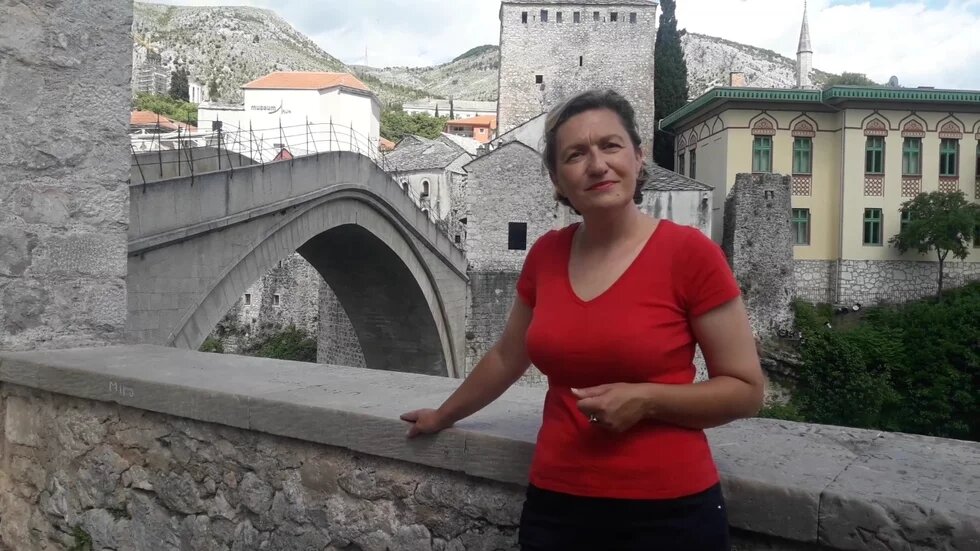All the media announced: “An agreement about Mostar has been signed”, “Elections will be held in Mostar” – the news has been popping up everywhere. One would think this historic agreement would “bring back co-existence and democracy”, as the famous Bosnian movie song goes. But is this really the case?

The Historic Mostar Agreement: Much Ado About Nothing
All the media announced: “An agreement about Mostar has been signed”, “Elections will be held in Mostar” – the news has been popping up everywhere. One would think this historic agreement would “bring back co-existence and democracy”, as the famous Bosnian movie song goes. But is this really the case?
Negotiations went on for ten years, in various forms and with various stakeholders, always ending with the conclusion that they would “keep negotiating”. Mostar was bundled together with other unsolved problems on various state levels (and there are too many of them), only to be unbundled, separated, put back together – we have seen and heard a lot in the meanwhile.
There have been good and not so good solutions about Mostar, however, few had expected that the situation would pretty much remain the same after all the talks and negotiations.
One thing is certain, when the leading politicians declare victory, it is the citizens who lose.
Walking around Mostar and talking to friends and acquaintances, I haven’t perceived this euphoria I’ve been reading about in the media. The announcement of the “return of democracy” has left the citizens of Mostar feeling apathetic.
We are, of course, all glad that we will finally have elections where we can choose councilors to represent us in the City Council. This way we would have someone to turn to when we want to solve a local problem. The “coffers and stamp” will no longer be monopolized by one or two persons, which leaves one at the mercy of individuals to decide whether they want to solve the citizens’ problems.
However, barely anyone believes that the elections will bring about real change.
Instead of 18 councilors from 6 city areas, we will elect 22 (South-West 7, Old City 5, West 4, North 2, South-East 2, South 2). This roughly means that for each 5000 citizens, we will elect 1 councilor.
Instead of 17 councilors from the City list, we will now elect 13.
Citizens living in the Central Zone will be voting outside their area of residence.
The math is clear and the changes are minimal.
The residents of the Central Zone which “unites” Mostar remain without “their councilor”, this time legally so.
The Statute of the City of Mostar has been subjected to some more substantial changes.
The position of the “main city counsellor” has been granted greater authority, and a “double signature system” has been introduced, named “double key”.
The citizens have recognized this as a double opportunity to block decision-making, which would hinder the work of the City Council. This means we will have “voted for nothing”, because once again we will have no one to turn to with our problems.
This type of decision-making opens so much space for obstructions, and we know what happens here when there is such a possibility – key versus key, block upon block, from one election cycle to the next.
A package of amendments of the Election Law of BiH has also been agreed upon, in order to ensure legitimate elections and political representation of the constituent peoples and the citizens in the Presidency and the Houses of Peoples.
Everything seems agreed upon, but in reality we are counting chickens before they hatch.
After the representatives of the two parties signed the agreements, under the pressure of the international community, they still have to pass through parliamentary procedures in both Parliaments and Houses of Peoples, where there are representatives of other parties as well.
The Election Law for Mostar and the modifications of the Statute have been drafted without representatives of Serbs and the Others. Whether the president of the SNSD will abandon the Herzegovinian Serbs, or will fight for their right to “legitimate representation” remains to be seen.
It will be interesting to watch the discussions and various voting and benefits trade-offs while these agreements and amendments are pushed through parliamentary procedures.
Furthermore, the new Statute of Mostar needs to be adopted by the new City Council, and no one knows what it would look like in the future. There is no one who at this point could guarantee that the Statute would be adopted in its current form during the Council’s first session.
In the meanwhile, Mostar will continue suffocating in garbage, the City administration will operate in a non-transparent manner and to the benefit of narrow circles of the privileged, while the daily exodus of youth taking the bus in search of subsistence abroad will continue.
If and when elections in Mostar do take place, I hope that the citizens will not give (or sell) their votes to the ruling parties once again, and that this time they would elect those who they believe would best represent their interests.
Otherwise, my friends, it’s not just them - it’s us.